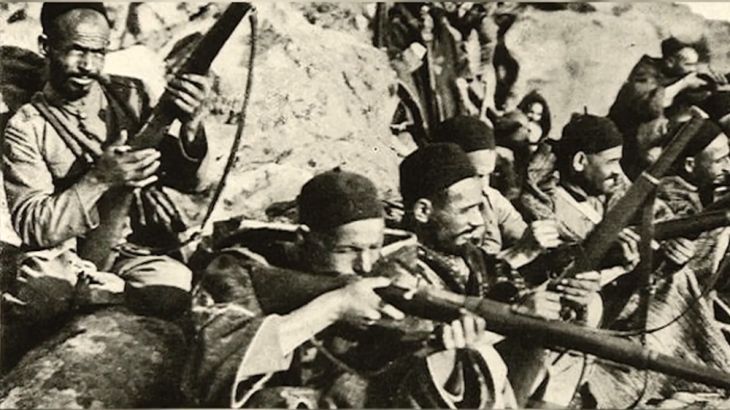
Tunisia’s Fellagha and the Battle for Independence
A first-hand look at the Fellagha, Tunisia’s armed fighters who fought the French until independence in 1956.
Scroll for Part 1: Rebels
Filmmaker: Sameh Mejri
Keep reading
list of 4 itemsTaiwan hits back at China for ‘repeated interference’ in upcoming elections
Panama celebrates court order to cancel mine even as business is hit
A ‘Russian love affair’: Why South Africa stays ‘neutral’ on war
To some, they are heroes, while others called them outlaws.
Even their name – the Fellagha – had different meanings for different people. While the word literally translates to “bandits”, in 20th century Tunisia, they were known as those who resisted the French presence in North Africa’s smallest country.
In Tunisia, they were the resistance fighters who launched a campaign against French colonial rule which, together with political negotiations, culminated in independence in 1956.
Drawn mainly from the mountainous rural south of the country, the Fellagha drew inspiration from their ancestors – rebels who had opposed the French immediately after colonial rule began in the 1880s.
By the 1920s, resistance to the French presence was growing, and by World War Two the Fellagha were launching regular attacks on French military installations in the country. In 1952, the armed resistance was officially launched and by 1954, Fellagha ranks had swollen to several thousand fighters.
Although the Fellagha faced a military opposition that was better equipped, better funded, more experienced, and had much greater numbers, they were determined. While on paper, the French army was a far superior force than the Fellagha, the Tunisians had local knowledge and public support on their side.
Like other North African independence movements, Tunisia’s decades-long fight against colonial rule also began as a mainly political one – but was not ultimately achieved without a violent struggle.
In this two-part documentary, we take a look at the Fellagha mainly through the eyes of its old fighters: men who fought the French, and then continued to take issue with the country’s new government even after independence.
PART 1: REBELS
|
|